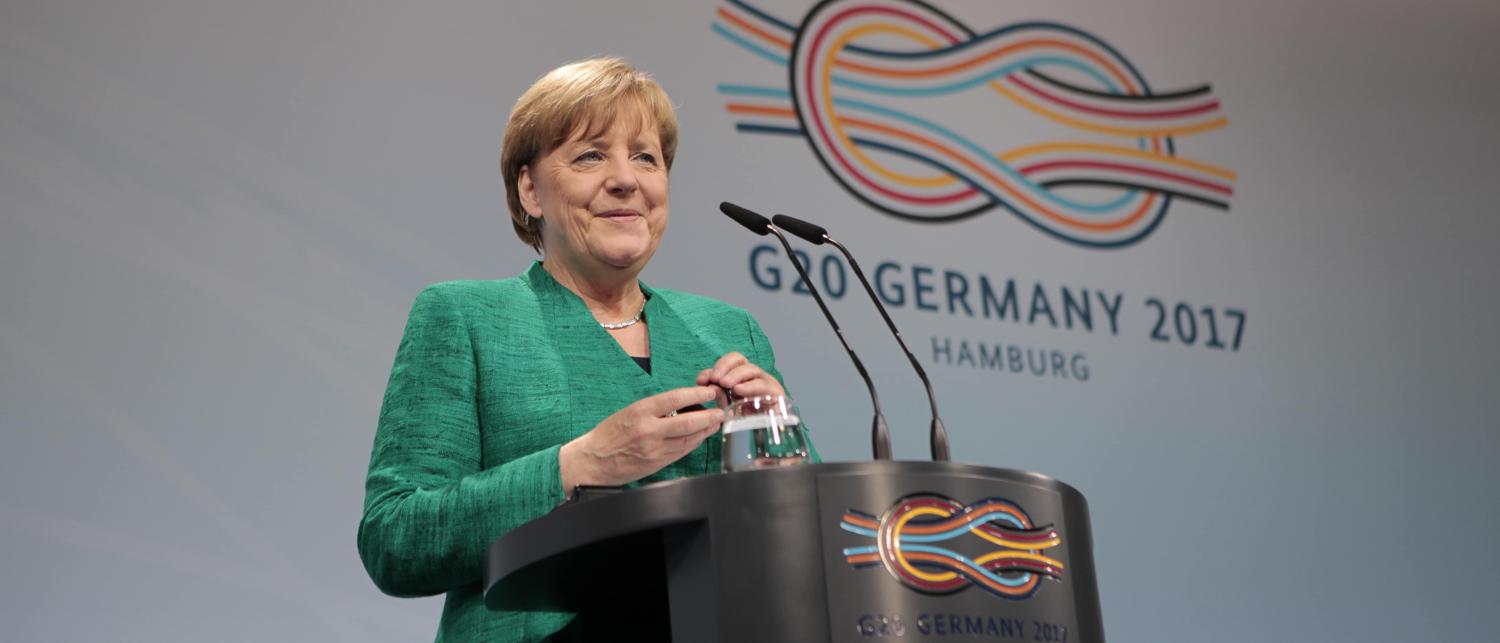Watchers of international financial markets have focused in recent months on the possible ramifications of an escalating trade war. The World Trade Organisation recently warned that rising trade tensions are impacting business confidence and investment decisions.
Against the background of rising protectionism, described by the International Monetary Fund (IMF) Managing Director as a “dark cloud” looming over the global economy, there is a touch of irony to G20 finance ministers meeting in Washington on Thursday to consider a status report from a G20 Eminent Persons Group (EPG) that largely revolves around proposals to promote greater international economic cooperation.
Is this a positive sign that may help counter the tit-for-tat tariff war unfolding currently, or another instance of the G20 increasingly becoming a talk shop divorced from reality?
The status report was authored by the EPG on Global Financial Governance that was established in April 2017. The EPG was tasked with reviewing challenges and opportunities confronting the global financial system, the optimal roles of the International Financial Institutions (IFIs), and to recommend practical reforms. Its final report is due in October 2018.
The EPG is chaired by Singapore’s Deputy Prime Minister, Tharman Shanmugaratnam, and its membership consists of distinguished academics. The group has not sought nor received much publicity.
Nancy Birdsall from the Center for Global Development (CDG) described it as a “relatively obscure and quiet group”. The meagre public attention may mean the group can have meaningful discussions with ministers on a wide range of issues without those ministers feeling pressure to immediately oppose anything controversial.
This status report will update relevant ministers on the group’s key findings and the direction of its thinking. The issues identified include an ever-growing multiplicity of international players; the increasing role of private capital flows and the challenge of harnessing these to promote growth; and threats to the “global commons” – climate change, pandemics, money-laundering, terrorism financing, tax evasion, and cyber-related risks.
The breadth of these challenges brings into play many international organisations, particularly the United Nations, but in keeping with its terms of reference, the EPG has focused on the Multilateral Development Banks (MDBs) and the IMF.
The EPG has identified six areas for reform to strengthen the development impact of the MDBs: the development of a set of core principles to coordinate all MDB operations; country-owned platforms as the basis of the MDB country operations; MDB collaboration to support system-wide risk insurance; collaboration on securitisation to mobilise institutional investors; governance structures and internal incentive arrangements that reorient MDBs towards achieving a greater development impact; and transparency of responsibilities and complementarities between institutions.
Regarding the challenges of securing the benefits of open financial markets, the EPG emphasises the importance of developing a framework, managed by the IMF, for assessing and mitigating excess volatility of capital flows and exchange rates, which would guide national policies.
The group also asserts the need to achieve a resilient, predictable, and adequate Global Financial Safety Net, as well as more integrated financial surveillance and institutionalised early warning systems involving the IMF, Financial Stability Board, and Bank of International Settlements.
The direction of the reforms identified by the EPG are neither radical nor particularly novel. The IFIs are unlikely to disagree with the EPG’s thinking to date. Many will likely argue that they have been advancing various initiatives along these lines, although with mixed success. They would probably also say that the attitude of some shareholders has been the major hurdle in making greater progress.
At the core of the EPG’s approach is the need for greater collaboration between the IFIs based on a system-wide approach to governance. The aim is to ensure that they operate as coherent and complementary parts of a system, rather than as independent institutions. But this in turn requires shareholders to adopt a system-wide approach to their participation in each and all of the IFIs.
Birdsall described the EPG’s status report as “disappointing but still hopeful”. She supported the group’s broad approach, but was disappointed that it had not endorsed some proposals contained in the 2016 CDG report on the MDBs, such as the recasting of the World Bank with a specific mandate to advance global public goods, and the MDBs being given a mandate (and funding) to provide grant financing in support of investments with positive spillovers.
The problem with the CDG’s proposals was that they exceeded the MDBs’ shareholders’ appetite for reform. This is the challenge facing the EPG. As noted, many of the issues raised in the group’s status report have been discussed in various forums for many years.
The question the EPG should be focusing on is: what has impeded implementation of the reforms?
IFI governance is a problem, but reforms will not be achieved unless they are driven by major shareholders who would need to forgo their desire to control individual institutions and be more responsive to the advice offered by the IFIs.
There is currently little to suggest that shareholders have an appetite to advance significant IFI reforms, particularly if it involves having to convince their electorates of the merits of increased financial support for an IFI.
There is certainly no such appetite in the US. The US Treasury Secretary Steven Mnuchin recently defended proposals that would sharply cut or eliminate American support for the MDBs, and new National Security Advisor John Bolton previously advocated for the IMF to be shut down and the MDBs privatised.
Thankfully, the work of the EPG has flown under the radar, avoiding the build-up of unrealistic expectations that significant reform of global financial governance is near at hand. The EPG must play a long game. Rather than focusing on specific reform measures, its immediate task should be to convince a group of key shareholders to be the champions for reform.
This is easier said than done.

